#so no medicare coverage. at all.
Explore tagged Tumblr posts
Text
In light of Brian Thompson being shot dead on my birthday (🎉🥳🎂) I'd like to share a personal story about UnitedHealthcare.
During the peak of COVID, my family all got sick. I couldn't be on my parents' insurance because they were both older and on Medicare. So, I had insurance through my University: UnitedHealthcare.
For some reason, rather than roll-over each year, I got a new plan each year that ended after May and didn't start until August, so I was uninsured for the summer months, but it was a weird situation that the university denied, and told us we were supposed to be insured year-round, it was messy.
Both of my parents went to the hospital, and I got sick too. I had to take care of my pets, and myself, and try to stay alive and keep my pets alive when I was so weak I could hardly move. When my parents came home, my condition got dramatically worse (I think my body knew it couldn't give out, because there was nobody to take care of me, so once my parents were okay, it completely crashed and failed.)
I started experiencing emergency symptoms. It was a bit hard to breathe, my chest hurt, and I was extremely delirious. I wanted to call my insurance to see if I was covered (this was during the summer) and I was connected to some nice person, probably making minimum wage, who told me with caution in her voice that my plan was expired. I had no active insurance, but she urged me to go to an emergency room. I remember saying something to the effect of "You just told me I don't have insurance, I can't go to the hospital, I can't afford it."
She sounded so genuinely worried and scared. I remember she said "You really don't sound good, you sound really sick, please call 9-1-1" and I think I just said "I can't afford it without insurance, don't worry, I think I'll be okay."
And she paused and said "I don't want to hang up the phone with you like this." And it sounded like she was holding back tears. And I don't remember what I said, I think that I would be okay, and I hung up.
I still think about her. I wonder if that phone call haunted her, or if she had dozens of calls like that a day. I wonder if she thinks about it at all, if she wonders if I died after she told me I didn't have insurance and therefore couldn't go to the hospital without incurring a tremendous financial burden. I wonder if she feels guilt or blame-- of course she shouldn't, it wouldn't have been her fault if anything had happened to me. Maybe it's self-centered to wonder if she thinks about it. I'm not the main character and it was just her job. But, still.
I think about how evil it was that we were put in that situation. Because offering year-long continuous coverage through the university plan would maybe cut into profits, maybe not benefit shareholders enough, maybe cut into Thompson's $10 million salary. While his minimum wage administrators have to feel afraid to hang up the phone, because on the other line someone might be dying, and they wouldn't know. While his patients hang up and decide to take their chances rather than put their family through that trauma.
This is UnitedHealthcare. This is Brian Thompson's legacy. This is why, understandably, an entire nation is jubilant that he was gunned down like the vermin he was. I don't care about his widow. I feel pity for his children, despite the fact that they will inherit millions, but I feel more pity for the children of his victims patients who are gone because they didn't want THEIR children to inherit crippling debt. Brian Thompson got what he fucking deserved. I pray that he not be the only one. I pray for continued safety, peace , and anonymity for his killer.
American healthcare is a disease.
28K notes
·
View notes
Text
Accessibility takes too goddamn fucking long.
My brother was paralyzed in October 2023. We got him home from the hospital (in Texas, when we live in Iowa) in a clunky old hospital chair. He hated it. He was scared and angry and in pain and his life had just changed forever and he couldn’t do anything for himself in that wheelchair. His first goal (aside from learning how to transfer) was to get a wheelchair. My family was lucky enough to afford one so we thought it would be easy enough. Nope.
We couldn’t buy him a wheelchair. He needed a prescription. For a wheelchair. A doctor had to examine him and declare him in need of a wheelchair. It wasn’t good enough that he had scans and tests showing tumors cutting off his spinal cord. He needed his primary care doctor to examine him during a physical and write a prescription. He was making 2-4 transfers a day, tops. He had no energy to get to a doctor. Home health was in and out every day. He had no time to get to a doctor. He didn’t get a prescription for almost a month. Then it had to go through insurance.
We asked if we could skip insurance and just buy a wheelchair for him. Nope. They wouldn’t sell us one, not even at full sticker price. It needed to be approved by Medicare. We ordered a wheelchair, a nice one, a good shade of green, sporty, small. It would let him move around the house. He would be able to cook, to reach drawers and get stuff from the fridge and brush his teeth and put his contacts in at a sink. We were told it would take awhile, maybe two months. Silently we all hoped he would be around to see two more months.
He went on hospice care on a Saturday in March. On Monday, I was calling his friends to come see him before he died. I got a call on his phone. It was the wheelchair company. They were about to order his wheelchair, she said, but there was an issue with insurance— had he stopped being covered by Medicare? Well, yes. When he started hospice care, he got kicked off Medicare. The very nice woman I talked to told me to call her if he resumed Medicare coverage so she could order his wheelchair. He died less than 12 hours later.
We ordered that chair for him in early December. Medicare didn’t approve the order until March. He was dead before they got around to it. He wanted that fucking wheelchair so badly. The only reason he had any semblance of independence and any quality of life for the last five months of his life was because the wheelchair company lent him an old beater chair, a very used model of the chair he ordered. If I could go back and change one thing about his end-of-life, I would get him his dream wheelchair. He told me again and again he couldn’t wait to get it, so that he could feel like a person again. He made the best of what he had with that old beater chair, but it still makes me mad to this day. He was paralyzed. He needed a chair that afforded him dignity. We had the money for it. And yet, we were left waiting for five months, for a chair that wouldn’t even get ordered until the day he died.
#sparklepants#we would have done anything we could to get him that wheelchair#nudge#disability#accessibility#spoonie#ok to rb and honestly please do
24K notes
·
View notes
Text
It's important to know what is going on.
Written by US Senator Chris Murphy (D - CT)

Report from the Senate Floor:
Last night in the Senate, something really important happened. Republicans forced us to debate their billionaire bailout budget framework. We started voting at 6 PM because they knew doing it in the dark of night would minimize media coverage. And they do not want the American people to see how blatant their handover of our government to the billionaire class is.
So I want to explain what happened last night and what we did to fight back. The apex of Republicans’ plan to turn over our government to their wealthy cronies is a giant tax cut for billionaires and corporations. And they plan to pay for it with cuts to programs that working people rely on. Popular and necessary programs like Medicaid, Medicare, and SNAP, are all being targeted.
In order to pass the tax cut, Republicans have to go through a series of procedural steps. Last night, they took the first step which requires them to pass an outline of their plan, but with it, any senator can offer as many amendments as we want. So my Democratic colleagues and I did just that.
Now, we knew that Republicans would largely unanimously oppose them, but we had two objectives here. One, Republicans were forced to put their opinion on record — many for the first time — on the most corrupt parts of Trump and Musk’s agenda. Two, as I’ve been saying, I am going to make every process and procedure as slow and painful as possible for as long as my colleagues choose to ignore the constitutional crisis happening before our eyes.
So what did we propose? We proposed no tax cuts for anyone who makes a billion dollars a year. We made them vote on whether or not Elon Musk and DOGE should have limitless access to Americans’ personal data. We made them vote on whether to protect IVF and require insurers to cover it. Every single amendment Democrats proposed was shot down. On almost every single amendment, Republicans universally opposed it. Every Republican voted against our proposal to prevent more tax cuts for billionaires. The corruption and theft is happening in the open here.
The whole game for Republicans is taking your money and giving it to the wealthiest corporations and billionaires — even if it means kicking your parents out of a nursing home or turning off Medicaid for the poorest children. They know what they are doing is deeply unpopular. They are offering a tax cut to the most wealthy that is 850 times larger than what they are offering working people. Oh and by the way, any tax cuts for working people are going to be washed out by higher costs for basic necessities, like health care and food. It’s a fundamental injustice.
Thanks to your pressure and support, many of my Democratic colleagues have joined my effort to do everything we can to make sure they cannot destroy democracy and steal your money in the dark of the night. We are being loud about what is happening. I’m going to continue to grind the gears of Congress down as much as possible to make it that much harder and slower to get away with this corruption. That’s why the votes lasted until nearly 5 AM.
This is a five-alarm fire. I don’t think we have two years to plan and fight back. I think we have months. It’s still in our power to stop the destruction of our democracy with mass mobilization and effective opposition from elected officials. So we can’t miss any opportunity to take advantage of opportunities to put Republicans on the record and shine a light on what is happening.
And you have a role to play in this as well. I need you to amplify what’s happening, support the leaders who are fighting for you to make sure they can continue speaking truth to power against Musk and Trump’s billionaire cronies, and show up at rallies and town halls. Use every tool at your disposal to send a message loud and clear about how you expect my colleagues to lead and fight in this moment.
Every best wish,
US Senator Chris Murphy (D - CT)
#chris murphy#democrat from Connecticut#grind their gears#make them own their shitty opinions#publicly#support your dems#usa in crisis#constitutional crisis
4K notes
·
View notes
Text
Phone scam gothic
So my mom sits down and starts telling me about two weird-ass phone calls she had today—she was returning a missed call, and the woman who answered just… sobbed for a minute. I’m sitting here asking, like, a whole minute? Nothing else, just sobbing? Who did you THINK you were calling back?
“United Healthcare, they have my Medicare plan. They’ve been calling me for weeks without leaving any voicemail.”
(Are you sure it was United Healthcare? “It was the same number that’s on my card, I checked, and that’s who the caller ID said it was.”)
Are you sure it was a whole minute? Did YOU say anything?
“Yes, like sixty seconds while I kept going ‘Hello? Hello?’ It sounded like she was having a nervous breakdown, I kept waiting to see if she’d tell me what was even wrong. Finally I just hung up.”
And then my mom turned right around and called back again, because she was gonna get to the bottom of this.
This time she got a different woman, perfectly calm, who wanted to set up “your in-home direct patient care home health visit.”
At this point (at this point?) I’m staring, because no one here currently has anyone coming to the house to help with any kind of medical care. My mom might honestly be the healthiest member of the household, but even I don’t use any home services, herniated discs and all. “Did they have you… confused with someone else?”
“No, she repeated my full name and phone number back to me.”
This lady then started ARGUING with my mother. Why don’t you want us to come to your house to manage your direct patient care? Don’t you need home health care to be managed? Why don’t you need home health care? Why would you not want home health care? “I JUST KIND OF HAVE HIGH CHOLESTEROL?” But don’t you want us to manage your home health care? “WHY DO YOU NEED TO COME TO MY HOUSE TO MANAGE HEALTH CARE I DON’T USE?”
My mom finally hung up on this lady as well, without giving her any real information.
The more we talked about it, the more things we started to notice:
I was incredibly creeped out by the unsolicited use of the word “manage,” for some reason. Very sinister “write me into your will” vibes for some reason—I don’t know what these people want, but they’re gonna get you to sign something over.
My mom got especially stuck on “WHY DO YOU NEED TO COME TO MY HOUSE?!”
My mom has used home health services before… years ago, before she was on Medicare. But this company wouldn’t know about that. However, if you’re on Medicare, you’re over 65. Having not ever dealt with my mother before, someone calling a Medicare user might be playing the odds that a person over 65 is 1) in frail health and 2) old enough to get easily confused.
Fair play to my mom, she’s the one who thought of number spoofing. I’m so busy not answering the phone ever and arranging all my medical communications to happen through passworded portals that I didn’t think of it.
Hey, are you guys, like… holding someone hostage…?
So at this point, I google “United Healthcare scam.”
The “health insurance counselor”
This fraudster will offer help navigating the health insurance marketplace for a fee, capitalizing on people’s confusion about the state-based health exchanges created through the Affordable Care Act.
What to know
This sort of assistance is indeed available and is legitimate, but the people who offer it – also known as “navigators” – aren’t allowed to charge for their services. Also, remember that people with Medicare coverage don’t need to use the state health exchanges. The exchanges are for people under the age of 65, who are looking to enroll in an individual health plan.
Change “navigate” to “manage,” and I think this is it, although the lady on the phone never mentioned any fees. Either my mom didn’t let her get that far, or this is the point of actually getting into someone’s house: persuading them face-to-face to pay something, and potentially refusing to leave until the scammer has worn their target down.
Medicare does not make unsolicited phone calls.
Okay, so it was a scam no matter what it was about. As far as I’m concerned, my mom should contact Actual United Healthcare about it, and I’m here to spread the good word of Never Believing Anyone on the Phone 2k24. I don’t know what to tell you about the lady having the nervous breakdown though.
#psa#phone scams#medicare scams#spoiler: it wasn’t united healthcare#okay but how do I call in a wellness check on a scammer#long post
1K notes
·
View notes
Text
This is class warfare. The ruling class is really freaking out that someone will come for them next, as they should in the natural order of things. You can see this on the cable news channels. So much “manhunt” style coverage and very little time spent asking the bigger questions. Why do insurance companies get to play god for a profit? Why don’t we have Medicare for all? Why are they covering the gallows humor of the reaction the way they are? NYPD and cable news pundits taking full advantage of the copiganda opportunity to find and catch the “bad guy”. We all know this was a righteous act. The media elites are trying hard to make us think otherwise but take a look at social media and you can see the public sentiment.
617 notes
·
View notes
Text
So, telehealth coverage is set to end March 31, 2025
This means trump and the gop right now have the option to end telehealth coverage starting April 1st
No news organization is writing about this.
Representative Ro Khanna seems to be the only one to sound the alarm.
#tiktok#donald trump#rep ro khanna#ro khanna#us house of representatives#u.s. house of representatives#representative khanna#fuck trump#trump#us politics#medicare#medicaid#telehealth#health insurance#healthcare#health care#trump administration#president trump
473 notes
·
View notes
Text
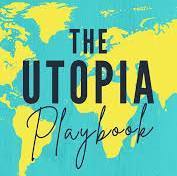



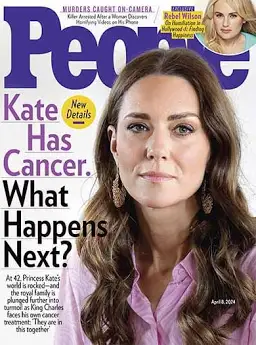
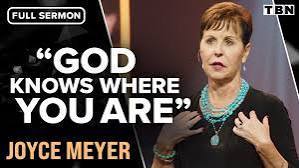
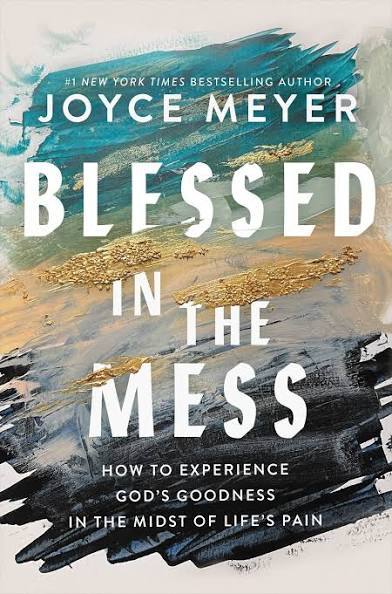


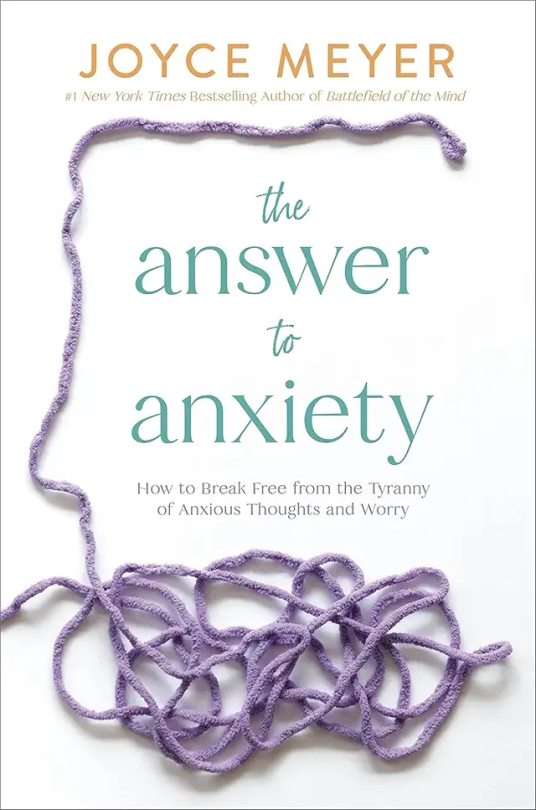





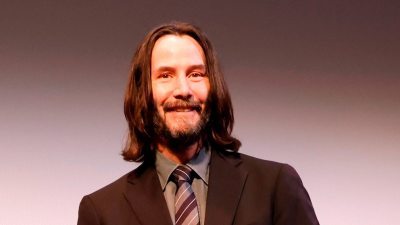

See the yellow statue
The yellow 💛 statue symbolizes me carrying the hood on my back and curing babies and other people infected with the disease HIV it is a statue of finding the cure for HIV with my cofounder the rapper 50 Cent from his hit show power and BMF with the drugs Cabenuva and Demivato which is sponsored specifically by the rapper Vado from Harlem New York City give it up for him and go purchase that song with him and Mary J Blige called the I still believe love song for the medication the drug Cabenuva is said to knock out HIV like the common cold it is 100 percent true and my personal stamp is on it now but you have to be taking the medication as prescribed so that you will go undetected for HIV , the story I was staying with a girl at that time that had HIV I was renting a room from her and I used to walk through that park to go and from work to her apartment .
Remember the Drug Cabenuva knocks out HIV like the common cold but you have to take the medication as prescribed so that you go undetected .
It 100 billion percent works and I put my personal stamp on it to see that people ordinary people from those neighborhoods even without medical insurance or Medicaid and Medicare get that cure . Which I'm approving every clinic hospitals and free clinics get this cure to administer to the people that needs that cure get the cure to go undetected for HIV I authorize all doctors and nurses to get the cure and give it to your patients in all hospitals local neighborhood clinics across the globe , thank you .
Calling all Children's hospital doctors and laboratories and all university inventing new medicine I'm on the lookout for the cure for all children cancers and Leukemia . I'm Calling for the cure for Leukemia and cancer in children can you help me with your expertise I will sponsor your medicine for you and bring it to the light . With my hospital incubator program I aim to treat and cure all illnesses, thank you so much .
Proposing the New day of medicine and cured people act . Just to speak a blessing over your life you have talk as if you already have that cure or remedy that you and your sick family member need to live another day .
Expedient Liver transplant
Expedient Heart transplant
Expedient Kidney transplant
Exo skeleton programs and physical therapy affordable to all levels of medical insurances or lack thereof No more waiting lists and taking years to help heal those in need of an Liver , Kidney or Heart transplant I believe medicine all doctors have advanced in knowledge and in the proper know how to help heal those in pain and in need of their loving care and special expert skills .
I sponsor it the drug and HIV medicine Cabenuva . I sponsor my incubator program and all hospitals on all 7 Continents of this world in every city , town and country even state capitals releasing the cure for cancer all cancers and to give free cancer screening and free cancer treatment for all the types of cancers and stages of cancer treatment to all people no matter their medical insurance coverage , Medicaid and , Medicare and all other insurances or lack thereof included fair treatment for all patients and clients . Facts on cancer I sponsor any lab that is trying to find the cure for Pancreatic cancer , I sponsor it most of the time inventors are afraid to go public with their gadget , widget , app or medical cure because they have nobody that will license it from them and sponsor it , me and my incubator program will sponsor your drug to cure all cancers in all stages I'm into doing the lord's work and bringing people back from the dead or near death experiences , good luck and may medicine and God be with you .
Now If I had HIV Aids I would take the medicine be like me and take your medicine so you could grow up healthy and strong like me and 50 Cent the rap musician from New York City we are co founders of the cure for HIV just know that all things is possible when you believe and have faith and now with Cabenuva we have that cure finally , thank you so much .Calling all top universities in the country and other countries and third world countries and medical science laboratories I'm on the lookout for the cure for all cancers I got the cure for HIV / AIDS now all I need is the cure for cancer I believe in you and I know you can do it . I found the cure for HIV / Aids the drug Cabenuva and Demivato and many more other drugs you have to take the medication as it is prescribed to go undetected for HIV / Aids the acquired immune deficiency syndrome the drug along with better self care like your diet and exercise doing that you will restore yourself back to fully functioning health remember take your medication as it is prescribed and the cure happens one day at a time . I'm also currently working on providing free cancer screening for people on Medicare / Medicaid and even for people without any medical insurance and the cure for all cancers and the treatment and cure for all stages of cancer for people on Medicare / Medicaid and even for people without any medical insurance and hospitals to work with a person's medical insurance company on affordable co- pay for all levels of insurance coverage making it impossible to turn away any person needing that diagnosis , treatment and cure for all cancers excluding none and for all stages of cancer . I see it all the time a person getting turned away because of their medical coverage or lack of coverage and that is unfair in the medical field the job is to treat all ills and reverse the order bring that person back to full health and I sponsor this for all countries across the globe and all hospitals I authorize it to see it go into plans of all clinics and hospitals now , thank you .
My job is to bring back the terminally ill from their death bed with a cure for cancer and with the new assisted treatment from doctors to help patients with the right medical coverage or lack of medical coverage and give them the care they need or the cure they need to reverse that illness and bring them back to full health . On HIV -Pregnant mothers that take the medication is less likely to pass the disease to their unborn infant while in fetus stage and on to their infant children both the parent and the kids can have a bright new future as undetected for HIV/ AIDS .
Some of my latest accomplishments
Wages increased for your workers and annual increases with that hitting all states recently and all of them soon . It definitely hurts to work all week make your paycheck then be broke the next day or two days because of inadequate pay and that is only for a single person what about people with families and they want a future and their kids to have a future and generations of their own family to have a future I say raised their federal minimum wage the wage increase for each city , town and state and regions of America and other countries , thank goodness for permanent free college release that heavy burden from the parents wallets and pocketbooks thank you so much it is my latest accomplishments getting a free college education for you and your kids . I propose that Minimum based wages and salary get a big raise in all regions cities towns and countries California pay $ 20 to $ 22 dollars an hour New York City $ 15 to 17 $ dollars an hour for base salary how about all cities and regions and places like Atlanta , Texas and Louisiana, Kentucky , Alabama raise their pay standards for its every day worker to that same amount of starting out at $ 22 dollars an hour call it eliminating the working poor and poverty in general and paying them a livable wage , pay your workers generously and they will provide better services for your company and represent your companies better with pride and having customers coming back to their second home your store and establishment . This is very sad and needs attention to this some states where people go to work and provide years of hard work to work and get nothing in return from their employers they give great service and keep their customers coming back and yet the minimum wage been stuck since 2009 while so much states have give their workers a raise that is a shame I hope they catch up me and Governor Andrew Cuomo raised for New York state and city and other cities with my incubator my machine and other cities and states followed suit California pay their workers $ 20 dollars now imagine every state in those regions raise their wages to the same amount at $ 20 dollars an hour in Texas , Atlanta , Louisiana , Tennessee, North Carolina and even South Carolina out there hopefully they carry on from there and all states and cities follow suit and raise their wages and pay their workers their fair wage .
A lot of states got through with their wage increased thank you for supporting that I'm honored check to see how much states took on me and Governor Andrew Cuomo pay increase law we started with my hospital incubator program even in Massachusetts now the pay for the everyday worker increased I'm hoping for more for them and politicians they will or should I had fun with my time in office I leave that job to the professionals now they should be raising the federal minimum wage in salary and pay for the everyday regular work and people wish you good luck and love to you and your family . Much love to Harlem New York City shout out to Lorraine bar in Harlem New York City go get a drink enjoy the nightlife and the music from the local music scene while I was granted my second stage my second chance at music so that I can avenge my former self from my death and with Joyce Meyer as my pastor and mom it shows that God truly does really raise people from the dead I'm one that he has raised from the dead through the teachings of my ministers and pastor . Beyonce Knowles Carter introducing me as a blind and deaf guy . My living testimony is if he can do it for me he can do it for you and raise you from the dead as a dead soul , physically , mentally and spiritually I know because God has done it for me and he works miracles like I now work miracles but it is because of his good grace , love and power , Thank God .
Sorry like I said I'm King 👑 Arthur and Joyce Meyer is my Excalibur . My rock my home my library and people I feed them and their families because we are all family and life is only getting better . Announcement I here today swear on God I'm King 👑 Arthur as God is my witness right here and now that I'm King 👑 Arthur even though I'm Black and me being Arthur Pendragon is from the movie King 👑 Arthur legend of the sword 🗡️ my Excalibur which is Joyce Meyer she is my guide teacher and helper . Dax Church my best friend and brother Knighted me along time ago telling me that with all that reading that I do that I will be a very great person it is my luxury now my richness yes all readers are leaders little girls and boys grow up to be kings and beautiful intelligent women that is true now I got my own rock in front of my library given to me and the library is given to me by Governor Andrew Cuomo and Governor Maura Healey my house is your house yes all readers are leaders and no nobody own me or is a judge in my life sorry I'm King and what done is done my kingdom and all mines I mean all our house we are all royalty just learn to develop yourself . They have my picture on the wall of the Berkshire library and in the librarians office Pittsfield Massachusetts and me standing behind Joyce Meyer playing with her hair she is my mom 🤣 and teacher .





https://www.statista.com/statistics/1305217/number-people-with-hiv-african-countries/
Campaigning the drugs Cabenuva and Demivato send my cure for HIV AIDS to Africa Co founders of the Drugs Cabenuva Kanye West , Allen Henry aka Free World ( me ) , 50 Cent the rapper from Queens New York City Cabenuva and Vado and Mary J Blige sponsors Demivato the I still believe in love cure for HIV .
Published by John Elflein, Aug 21, 2024 I would like to cure all these people of HIV . News : As of 2023, South Africa was the country with the highest number of people living with HIV in Africa. At that time, around 7.7 million people in South Africa were HIV positive. In Mozambique, the country with the second-highest number of HIV-positive people in Africa, around 2.4 million people were living with HIV. The African continent, particularly in East and Southern Africa, bears a disproportionate burden of the HIV/AIDS epidemic, with countries like Eswatini, Lesotho, and South Africa having high HIV prevalence rates. Here's a more detailed look at the countries most affected:
Countries with High HIV Prevalence:
Eswatini: Currently has the highest prevalence of HIV in Africa and worldwide, with almost 26% of the population living with HIV.
Lesotho: Follows closely behind Eswatini with a high HIV prevalence rate. South Africa: While not having the highest prevalence, it has the highest total number of people living with HIV in Africa. Other countries with high prevalence rates in Southern Africa:
Botswana, Malawi, Mozambique, Namibia, Zambia, and Zimbabwe. Other countries with high HIV prevalence rates: Kenya, Uganda, and Tanzania.
HIV Prevalence in West and Central Africa:HIV transmission is estimated to be lower in West Africa than in the rest of the region. However, countries like Nigeria, Cameroon, and Côte d'Ivoire also have significant HIV/AIDS challenges.
Factors Contributing to the Epidemic:Socio-economic factors:
Poverty, gender inequality, and lack of access to education and healthcare exacerbate the epidemic.
Cultural norms: Certain cultural practices, such as intergenerational sex and non-condom use, can contribute to HIV transmission.
Structural factors: Labor migration, family disruption, and entrenched social and economic inequalities can also play a role. Progress and Challenges
:Progress in treatment:
Antiretroviral treatment (ART) has significantly reduced HIV-related deaths and improved the lives of people living with HIV. Challenges in prevention:
Despite progress, new infections continue to occur, particularly among young women. Stigma and discrimination:
Stigma and discrimination surrounding HIV/AIDS can prevent people from accessing testing, treatment, and care.
Read facts in this post on Cabenuva knocking out HIV like the common cold and leaving a person undetected for HIV .
I know their an unborn child being born with HIV and maybe a baby dying right now as we speak with the disease due to a lack of help and love and me and my co founders of the cure would like to be their superheros and save them for something that is now curable HIV Cabenuva can knock out HIV like the common cold and leave a person undetected for HIV .
I found the countries needing that help please send the cure for those that need it , thank you .
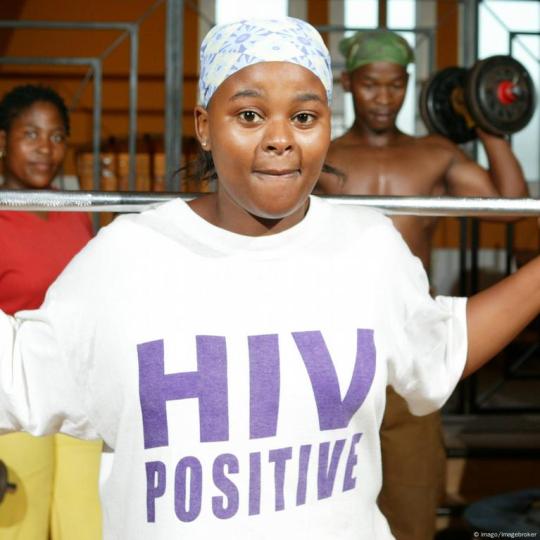


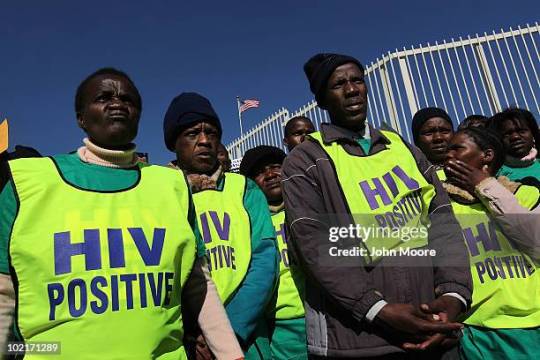
David Muir I hope he gets the news 📰🗞️ and report it about the cure for HIV and sending it to Africa , yeah mommy we getting the cure for HIV , go Africa yeah , mom and dad and the kids are getting the cure 🌍 thank goodness their is finally a cure for HIV . I decided not to Knight bloods I broke the friendship off with them no thank you I'm not bounded to them that easy them African Americans and white people need to get off me with that voodoo and get out of my life and people that is born to get in my way in life need to get out of my way in life and get a life of their own and out of my life and personal business wack rappers and rats and all these actors and that game they got going on in Pittsfield Massachusetts no thank you .
Sorry like I said I'm King 👑 Arthur and Joyce Meyer is my Excalibur .
Hey important message I don't know why the people that is controlling the situation around me why they are doing it but they got females fighting around me and badly hurting them and bruising their faces that is women no good stop the violence it is bad enough these women are down on their luck and living in shelters very dangerous shelters they are controlling them making them fight one another , I said no and that is my decree stop the violence and learn to talk things out as friends in peaceful conflict resolution.
I propose for an increase in apartment voucher program for the temporarily homeless in Pittsfield Massachusetts counselor at these homeless shelters should be able give to their clients an apartment voucher or voucher for full payment of their rent for their apartments for singles or homeless families in need of a warm apartment to stay in with the human resources administration compliance of their client to receive the full rent coverage for their apartment . Literacy programs calling for volunteers to teach unemployed Latin , Russian , Asian and other foreign people the English language and how to fill out job applications and do resumes and cover letters and how to conduct themselves on job interviews to help with their social mobility in America .
Resume and cover letter workshops should focus on the different types of resumes that can get a person a job , cover letters are just to say hey I got the right qualifications for that job and I did my research on that particular company and I'm interested in working for them and these are the skills soft skills the get along attitude and the aptitude the know how of to get that job done .
Three types of resumes :
Functional resumes
Chronological resumes
Functioning and then chronological resumes and build on showing people that never been employed any soft skills and hard skills they may have that is called their transferrable skills that can be used by an employer for their jobs .
I Want to take this opportunity to say thank you to some of the Super Women in my life that taught me and sponsors me getting up in this second chance in my life both women well all three women I'm greatly fans of and love , Thank you Nicki Minaj the rapper the female gangster rapper , Cardi B the Mami from the Bronx New York City I love your music and Meaghan the Stallion from Houston Texas love you and thank you for your sponsorship I gotta go to my basic training on learning the basics and fundamentals of me getting my second chance in my life , thank you .
246 notes
·
View notes
Text
ROBERT REICH
FEB 14
Friends,
I want to talk today about the media’s coverage of the Trump-Vance-Musk coup.
I’m not referring to coverage by the bonkers right-wing media of Rupert Murdoch’s Fox News and its imitators.
I’m referring to the U.S. mainstream media — The New York Times, The Washington Post, the Los Angeles Times, The Atlantic, The New Yorker, National Public Radio — and the mainstream media abroad, such as the BBC and The Guardian.
By not calling it a coup, the mainstream media is failing to communicate the gravity of what is occurring.
Yesterday’s opinion by The New York Times’ editorial board offers a pathetic example. It concedes that Trump and his top associates “are stress-testing the Constitution, and the nation, to a degree not seen since the Civil War” but then asks: “Are we in a constitutional crisis yet?” and answers that what Trump is doing “should be taken as a flashing warning sign.”
Warning sign?
Elon Musk’s meddling into the machinery of government is a part of the coup. Musk and his muskrats have no legal right to break into the federal payments system or any of the other sensitive data systems they’re invading, for which they continue to gather computer code.
This data is the lifeblood of our government. It is used to pay Social Security and Medicare. It measures inflation and jobs. Americans have entrusted our private information to professional civil servants who are bound by law to use it only for the purposes to which it is intended. In the wrong hands, without legal authority, it could be used to control or mislead Americans.
By failing to use the term “coup,” the media have also underplayed the Trump-Vance-Musk regime’s freeze on practically all federal funding — suggesting this is a normal part of the pull-and-tug of politics. It is not. Congress has the sole authority to appropriate money. The freeze is illegal and unconstitutional.
By not calling it a coup, the media have also permitted Americans to view the regime’s refusal to follow the orders of the federal courts as a political response, albeit an extreme one, to judicial rulings that are at odds with what a president wants.
There is nothing about the regime’s refusal to be bound by the courts that places it within the boundaries of acceptable politics. Our system of government gives the federal judiciary final say about whether actions of the executive are legal and constitutional. Refusal to be bound by federal court rulings shows how rogue this regime truly is.
Earlier this week, a federal judge excoriated the regime for failing to comply with “the plain text” of an edict the judge issued last month to release billions of dollars in federal grants. Vice President JD Vance, presumably in response, declared that “judges aren’t allowed to control the executive’s legitimate power.”
Vance graduated from the same law school I did. He knows he’s speaking out of his derriere.
In sum, the regime’s disregard for laws and constitutional provisions surrounding access to private data, impoundment of funds appropriated by Congress, and refusal to be bound by judicial orders amount to a takeover of our democracy by a handful of men who have no legal authority to do so.
If this is not a coup d’etat, I don’t know what is.
The mainstream media must call this what it is. In doing so, they would not be “taking sides” in a political dispute. They would be accurately describing the dire emergency America now faces.
Unless Americans see it and understand the whole of it for what it is rather than piecemeal stories that “flood the zone,” Americans cannot possibly respond to the whole of it. The regime is undertaking so many outrageous initiatives that the big picture cannot be seen without it being described clearly and simply.
Unless Americans understand that this is indeed a coup that’s wildly illegal and fundamentally unconstitutional — not just because that happens to be the opinion of constitutional scholars or professors of law, or the views of Trump’s political opponents, but because it is objectively and in reality a coup — Americans cannot rise up as the clear majority we are, and demand that democracy be restored.
128 notes
·
View notes
Text
I work for a private health insurance company in their Medicare advantage department. Here’s a fun fact:
We are not allowed to ever tell somebody to call 1-800-Medicare. We always tell them if they need to update their Medicare info, they need to contact their local social security office? Why? Two reasons: 1.) it’s true, if you need to make any updates to Medicare; eg name change, got accidentally termed, etc, social security actually handles all that. But 2.) Because it directly counts against us.
See, Medicare has this really stupid practice. If a Medicare member contacts 1-800-Medicare and gives their insurance company’s name, it automatically is a ding against them. The member could be praising us about how fantastic we were and it wouldn’t matter, if we are mentioned, we are penalized. And those penalties can affect our Star rating. That Star rating is important because that determines how much money Medicare pays us, and if we can even offer MA plans at all. If a plan has 5 stars, then people can enroll in that plan at any point in the year, Medicare will send potential members our way, and they pay us more. But if we get 3 stars, then Medicare starts sending out paperwork to all of our members telling them our plan sucks balls and they should consider finding new coverage. And if we get 1 star, Medicare revokes our right to sell Medicare Advantage products.
See, for profit insurance companies really only care about making money and one of the biggest money streams is what comes in from the federal government. So if enough people called 1-800-MEDICARE and complained about a certain health insurance company, the people could tank their star rating and actually lose them a massive revenue stream.
Let me be clear, it has to be the SPECIFIC subsidy, not just BlueCrossBlueShield, you need to pick the subsidiary, but, if you call about all of the subsidiaries BCBS owns, then you can knock out pretty much their entire MA market.
You know, food for thought.
#us politics#us healthcare#us health system#us health insurance#medicare#medicare for all#democracy#democrats#medicare advantage#1-800-Medicare#united states#united healthcare#luigi mangione#blue cross blue shield#humana
121 notes
·
View notes
Text
I used to run a doctor's office. If your doctor's office hasn't explained this to you, let me do it for them.
You probably don't know how much time your doctor and their staff spend fighting with insurance companies for routine, ordinary things. The stories you see online might leave you thinking that these fights are, if not rare, maybe occasional. A sometimes sort of challenge.
Nope.
It's every day. It's all day. Your doctor's office has employees who fight with insurance companies as a full time job.
This isn't an accident or a side effect of other market forces at work - this is the deliberate, calculated plan the insurance companies have chosen to implement. They know very well it is hurting patients and providers, and they're okay with that because their priority is to maximize ROI for investors and other stakeholders. They're in the business of business, and they don't give a single fuck about human beings or health care.
They've lowered reimbursements in primary care so effectively that primary care has only survived in many parts of the US by becoming a loss leader for larger health systems. You know how the local retail store gets you in the building by selling something at slightly below cost because they know you're likely to buy more once you're inside? It's like that, a loss leader.
The health system where you get your primary care often loses money when you see your PCP, but since your PCP refers you to speciality care inside their own organization, the system makes up the money when your doctor sends you to see their own systems' surgeons, endocrinologists, dermatologists, etc.
Smaller primary care practices literally can't survive. That's why there are almost no independent family doctors any longer. That's why it is so hard to see the same provider with consistency, someone with whom you can develop trust over time, who knows you and knows your challenges. United Healthcare and it's private healthcare insurance competitors have nearly finished killing off that kind of primary care.
Larger primary care practices (30-40 providers) might still be able to make ends meet independently through economies of scale and/or what they earn by doing their own lab/testing/imaging services in-house, but that won't work much longer if current trends continue. We're headed in the direction of just a handful of vertically integrated businesses running healthcare, and they are in the business of business, not health care.
The insurance companies deliberately create administrative barriers which make it expensive for your doctor's office to advocate for you because it moves administrative costs away from the insurance company and onto your doctor's office. This results in fewer paid claims when your doctor's office can't afford to hire another full time position whose only job is to argue with insurance companies and jump through their deliberately obstructive hoops. They want your PCP to be struggling to stay open. They want your PCP unable to afford the cost of overcoming the administrative burdens they have deliberately created for the purpose of denying you the health care your doctor thinks you need.
There are other words for this, but the most appropriate one is "evil."
I don't want to glorify murder or lionize Luigi Mangione, but Brian Thompson was a ghoul, his senior team are ghouls, and the for-profit health insurance industry is a disaster for Americans, even those Americans who don't yet see the problem affecting themselves. They will.
We need universal, single-payer health coverage, just like every other wealthy nation.
We're not going to get it any time soon, and things are about to get worse for healthcare in the US.
Set aside the damage RFK Jr is likely to do to an already patchwork public health system by attacking regulations and spreading misinformation. Let's look at other ways Trump and the GOP plan to worsen health care.
1. They're going to go after Medicare and Medicaid benefits. They'll seek to lower them and raise the bar which must be cleared to receive them.
2. They're going to seek to raise the age for social security benefits (above 70!), and reduce benefits paid, so the most financially vulnerable seniors will have greater out-of-pocket costs. Those seniors are going to struggle harder with out-of-pocket costs.
3. They're going to attempt to cripple the Affordable Care Act (AKA 'Obamacare'), despite the fact that the ACA has been a HUGE money maker for the private insurance companies.
4. This administration will be run by hyper capitalist billionaires. It will seek to deregulate wherever possible and promote supply-side economics (tax breaks for the rich and large corporations) at every opportunity. United Healthcare and its competitors, which already weild an obscene, horrific amount of control over US Healthcare, are about to get substantially more power.
It's bad, folks. It's a very bad time to be sick and it's going to get worse.
Alan Grayson was right in 2009. The Republican health care plan has been and remains:
* Don't get sick
* If you do get sick, die quickly.
#health care#insurance companies#health insurance#luigi mangione#the adjuster#explainer#healthcare#primary care#Us politics#Us healthcare policy#Death of Primary Care
92 notes
·
View notes
Text
MISSOURI VOTERS!!!
ABORTION RIGHTS ARE OFFICIALLY ON THE MO BALLOT THIS NOVEMBER 5
I know tumblr dot com doesn't give a shit about rural, deep red states, but this is HUGE. Missouri has one of the most restrictive abortion bans in the US, allowing exceptions only "to save the pregnant person's life" or "to prevent serious risk to the pregnant person's physical health," and even these have stipulations requiring a mandatory 72-hour waiting period and counseling, parental consent for minors, as well as banning Medicare and insurance from providing abortion coverage
WE CAN CHANGE THIS
Ammendment 3 would change the Missouri constitution, effectively reestablishing reproductive freedom. More specifically, this includes "the right to make and carry out decisions about all matters relating to reproductive health care, including but not limited to prenatal care, childbirth, postpartum care, birth control, abortion care, miscarriage care, and respectful birthing conditions."
Ammendment 3 also only allows for future legislation restricting abortion access after fetal viability. While this is less than ideal, you have to understand that this is Missouri we're talking about, a state where Trump won in 2020 by a 15% margin. Republicans have already tried (and failed!!!) to have Ammendment 3 removed from the ballot-- they're scared, but we HAVE TO SHOW UP.
A "Yes" vote on Ammendment 3 is in favor of amending the MO constitution and restoring the right to choose what happens to OUR bodies.
WE HAVE A CHANCE TO FIX THINGS
- - - - -
Voter Resources:
October 9 is the deadline to register to vote, and you can do so here: https://www.sos.mo.gov/elections/goVoteMissouri/register
Find a polling place: https://voteroutreach.sos.mo.gov/portal
Register for absentee voting:
Online: https://www.vote.org/absentee-ballot/missouri/
By Mail: https://www.sos.mo.gov/elections/goVoteMissouri/howtovote
Confirm your registration status: https://voteroutreach.sos.mo.gov/portal/
Accepted Forms of Voter ID (required in MO): https://www.sos.mo.gov/voterid
REBLOG TO SPREAD AWARENESS
#us politics#politics#pro choice#abortion#2024 elections#missouri#vote blue#vote democrat#vote harris#vote kamala#vote#feminism#right to choose#harris walz 2024#harris walz#signal boost
130 notes
·
View notes
Text
If they don't fix the debt ceiling problem by June 1st—and it looks like that's a real possibility—it's not clear if people will be getting their social security checks or Medicare coverage. This is so bad, I'm not sure if any of you are following this but we all probably should be.
I'm not gonna do a writeup myself because I'm brainfogged to hell and don't want to risk accidentally sharing inaccurate information but you should look for news articles on this.
1K notes
·
View notes
Text
Qasim Rashid at Let's Address This:
On May 20, 1962, JFK delivered an impassioned speech at Madison Square Garden in favor of universal healthcare. Then, decades later in 2006 nearly 7 in 10 Americans believed the government should fund healthcare. And now, a new Gallop Poll reports that 62% of Americans believe in guaranteed universal healthcare. And despite this decades of support, not a single Presidential candidate this cycle had the courage to run on this wildly popular platform. Over the last week I’ve written in detail about America’s Violent Health System, and likewise, shared a deeply personal story about When Insurance Rejects Life Saving Care about our daughter Hannah Noor.
In response, I’ve received overwhelming empathy and compassion from conservatives and liberals alike, Republicans and Democrats, from those who self-identify as “Ultra MAGA” to those who label themselves as “Bernie Social Democrats.” Americans get it. Healthcare needs to be a human right. Sadly, politicians, Republicans and too many Democrats alike, don’t get it. They worship at the altar of corporate donations. The health insurance industry annually spends a harrowing $700,000,000 on lobbying politicians to do their bidding. And that doesn’t even include what they spend on SuperPACs to block out candidates who dare run on a platform of guaranteed universal healthcare. Those same healthcare corporations then engage in a mass media blitz of misinformation and disinformation to convince people to vote against their own self-interests. In reality, guaranteed universal healthcare is a proven model adopted by every single developed nation on Earth (and many lower income developing nations). And while I do not have $700,000,000 to counter the lobbying propaganda health insurance corporations infuse into our politics, I do have access to the facts that health insurance corporations hope the American people don’t realize.
Myth 1: We Can’t Afford Universal Healthcare
Fact: The opposite is true. Dozens of studies prove that universal healthcare will save Americans billions of dollars annually. In fact, 22 studies reviewed all concluded that universal healthcare would save approximately $450 billion a year. And this is a universal conclusion. For example, “Even the Mercatus Center, a right-wing think tank, recently found about $2 trillion in net savings over 10 years from a single-payer Medicare for All system. Most importantly, everyone in America would have high-quality health care coverage.” Moreover, we cannot forget that right now approximately 73 million Americans are on Medicaid, 68 million Americans are on Medicare, and 10 million Americans are on Tricare. That means that of our nation’s 335 million people, approximately 151 million are already on a universal (or near universal) healthcare model. And guess what? These programs each cost significantly less than the exploitative for-profit healthcare model. The overhead on these programs is 2-3%, while the overhead on for profit healthcare is 20%, plus a near unlimited mark up on prescription drugs. In this we have a side by side comparison of access to the exact same doctors and medications, except one has a nominal mark up and the other has a 10X markup. It doesn’t take an MBA in finance to understand that the same product or service without the massive markup is the smarter path to take. The only thing we cannot afford is for the current exploitative for profit model to continue.
Myth 2: If Costs Go Down, So Does Quality of Care
Fact: This is simply not true. It is important to understand why costs decrease, because contrary to the myth, every single one of the above studies found that quality of care would not decrease with universal healthcare.
[...]
Myth 3: Universal Healthcare Puts Millions Out of Work
Fact: What would happen to the roughly 1.8 million Americans who work in medical billing? This is a great question and has a robust answer that I break down in three parts. First, remember that about 40% of these jobs are already in the Medicaid and Medicare and Tricare industries—which is essentially universal healthcare for a portion of society. Therefore, we’re talk about roughly 1 million jobs, which admittedly is still a large number. What to do with those? Well, hence the second point. Expanding Medicare to accommodate another 175 million people will necessarily require medical billing professionals and administrators to do those jobs. Therefore, the question is not about eliminating jobs, but about transitioning workers from the for profit exploitative system, to a non for profit system that prioritizes access to healthcare. Likewise, remember that ending the for profit system saves us at least $450 billion annually. These resources give us options. For example, these are excellent resources that could be spent on a lengthy 2-year salary severance to those in medical billing who do lose their jobs, plus adequate funding and training to allow them to become proficient in a new job. Indeed, at $70 billion annually, four-year-public college costs a fraction of what would be saved by shifting from an exploitative for profit model, to a universal healthcare model. We cannot afford not to make the shift.
[...]
Myth 5: Universal Healthcare Causes Long Wait Lines
Fact: For primary physician appointments, Americans already wait longer under our exploitative for profit model than do people in nations with universal healthcare. Frankly, I marvel at this allegation as I reflect over the fact that it took us more than two years to get our daughter the critical life saving medication she needed, only because our exploitative for profit health insurance company refused to accept our doctor’s medical instruction. In reality, wait times in the United States are shorter only for elective surgery, but for primary care or for critical care, the United States is the worst out of any nation with universal healthcare.
Qasim Rashid wrote a solid piece debunking anti-universal healthcare lies propped up by for-profit health shills.
50 notes
·
View notes
Text
Democrats are charging out of their national convention with enthusiasm and determination ― and in far better shape than seemed possible just a few weeks ago, when then-presumptive nominee President Joe Biden was headed for likely defeat.
Vice President Kamala Harris has wiped out Biden’s deficit in the polls, and now holds small but discernible leads over Donald Trump in both national and swing state surveys. She’s also expanded the electoral map, putting in play states such as North Carolina that seemed lost to Democrats when Biden was leading the ticket. As of this writing, Nate Silver’s predictive model suggests Harris is a 52.8% favorite to win.
It will take a few days for pollsters to figure out whether Harris got the traditional convention bounce, pushing her support even higher, or whether she got a version of it beforehand via the burst of activity and favorable press coverage around her campaign launch.
Either way, it’s hard to look back on the week in Chicago and deem it anything but a smashing political success, from the (still reverberating) call to arms by former first lady Michelle Obama to the (still circulating) sight of Gus Walz, son of vice presidential nominee Minnesota Gov. Tim, tearfully telling the crowd “that’s my dad!”
Harris, for her part, gave what my colleague Jen Bendery’s story called the “speech of her life.” Plenty of other analysts rendered similar judgments.
With a passionate, near-flawless delivery, Harris introduced herself as the daughter of immigrants who valued virtue and hard work, promising to fight for the middle class and vowing to protect democracy. She wrapped herself metaphorically in the flag and what she thinks it represents to the nation’s non-MAGA majority. The laser focus on trying to win over swing voters was impossible to miss, in part because it was such an overriding theme all week ― whether through cultural symbolism (like having the aging veterans of Walz’s championship high school football team appear on stage) or more overt outreach (like having former House Republican Adam Kinzinger give a prime-time address).
But the appeal to the political middle had some telling substantive elements too.
Insofar as Harris and Democrats talked about policy, they focused on causes such as bringing down prescription drug prices, providing paid leave or helping families to pay for child care ― ambitions considerably more modest than the loftier, more progressive “Medicare for All” calls that dominated the last Democratic presidential campaign and to which Harris herself once pledged fealty. Harris also went out of her way to back a bipartisan immigration bill that would tighten security without creating a pathway to citizenship for undocumented immigrants already here, which is a provision progressives have frequently called essential.
The platform evolved, with party leaders scrubbing a call to end the death penalty ― quietly, until my colleague Jessica Schulberg found out about it. They also refused requests to feature a Palestinian speaker on the conflict in Gaza. That part wasn’t so quiet, or unanticipated. In fact, the prospect of protests and disruptions over Biden’s support for Israel had fueled speculation that Chicago 2024 was going to end up as tumultuous as Chicago 1968. But as HuffPost’s Daniel Marans and Jonathan Nicholson observed, the fissures never blew up into 1968-style conflicts ― not over Gaza, or any other issues for that matter. On the contrary, the Democrats seemed improbably and almost impossibly unified, with would-be progressive dissidents like Rep. Alexandria Ocasio-Cortez (D-N.Y.) sounding downright giddy about the Harris-Walz ticket.
What explains this unified enthusiasm? Three likely reasons come to mind. One in particular has a lot to do with how the party has changed in recent years ― and what it might be able to do if Harris manages to win.
Democrats In Array
One of these likely reasons is the threat Trump poses to individual liberties, the rule of law and democracy — threats progressives feel every bit as keenly as the more moderates in the party. These threats almost certainly seem even more menacing now after so many months watching Biden struggle.
Staring into the political abyss this way has been known to focus the mind.
Another possible factor is Harris’ identity. Electing the first woman president, not to mention the first Black woman and the first Asian woman, would have obvious symbolic value. But it would also have more practical effects — namely, bringing a new perspective to the presidency and making it easier for other women, and other nonwhite politicians, to make their own way to the Oval Office.
Progressives almost by definition care about these things, enough that it can help counterbalance appeal for politicians who see the ticket as less progressive than they might like. Barack Obama in 2008 benefited from just such a dynamic, as The New York Times’ David Leonhardt pointed out on Friday: “He was more moderate than some other Democratic candidates that year, yet he still excited many progressives.”
Harris notably hasn’t talked about herself as groundbreaker, and the campaign hasn’t made that possibility a focus in the way that, say, Hillary Clinton’s did in 2016. But that’s of a piece with Harris’ broader strategy since appeals tied to race or class can alienate some of the swing voters she’s trying to win. The voters who feel otherwise, meanwhile, don’t need reminders.
This brings us to the third, and potentially most important, theory for progressive enthusiasm: Democrats have gotten an awful lot done since Biden took office. An awful lot of it consisted of initiatives or reforms progressives have long championed. And most importantly, it all happened with progressives having a big seat at the table.
The most significant and visible of these accomplishments was the clean green energy investments of the Inflation Reduction Act, which add up (arguably) to the most important climate change legislation in history, plus the law’s health care provisions, which for the first time gave the federal government leverage over the prices of some high-priced drugs in Medicare.
But the list goes beyond that, to the appointment of aggressively pro-consumer and pro-labor officials at key federal agencies, and the burst of spending during the pandemic that (whatever its real or theorized effects on inflation) drove both unemployment and child poverty down to near-record levels.
All of these feel well short of the kinds of transformations progressives would prefer with, say, enactment of “Medicare for All.” But they had, are having or will have tangible, measurable effects on people’s lives — and are examples of the kind of achievements that might be possible if Harris wins and Democrats have control of both congressional houses again.
It so happens that these are also the kinds of achievements that animate up-and-coming party leaders, even if they are not members of the progressive wing — figures like Govs. Josh Shapiro of Pennsylvania and Gretchen Whitmer of Michigan, or Sen. Raphael Warnock of Georgia. Not coincidentally, all gave Harris rousing endorsements in prime- time speeches.
But that too is part of the story about unity: The party’s “moderate” wing today feels pretty strongly about using the federal government to make people’s lives better, just as it does about protecting the freedoms Trump threatens. They may emphasize it differently — focusing more exclusively on the Inflation Reduction Act’s clean energy manufacturing jobs, for example, and a bit less on its environmental impact. They still land in the same place on policy.
Whether these good feelings would carry through enough to enact a legislative agenda is obviously a separate question and one that is very secondary to the question of whether Democrats even get that opportunity.
The presidential race is still a toss-up, or maybe even a bit worse than that for Harris if the polling now is missing Trump votes the way it did in 2016 and again in 2020. Republicans remain by most accounts a slight favorite to hold at least one house of Congress.
But Harris is coming out of Chicago on a roll, with a party behind her as she reaches out to the swing voters she needs to win. That’s a pretty good place to be.
61 notes
·
View notes
Text
Medicaid is a federal program that provides health care to roughly 72 million Americans, including some 14.8 million Californians. Among other kinds of care, Medicaid — which turns 65 years old this year — includes coverage for lower-income and disabled people. Among other things, it covers substance abuse programs, nursing home care, and nearly half of all births nationwide.
Now, Republicans in Congress are proposing huge cuts — at least $880 billion — to this government health insurance program as part of a budget package that would extend and expand tax cuts for the wealthy, as well as finance President Donald Trump’s border security agenda.
Republicans have claimed that Medicaid doesn’t improve health outcomes, states inappropriately juice their federal Medicaid dollars and that shrinking Medicaid funding would improve it. But what would such deep cuts to Medicaid actually look like, and how likely are they to happen?
KQED Forum spoke to the following experts about what to know about Medicaid right now — what it does, who it serves and who would be most affected by the proposed cuts:
Larry Levitt, executive vice president, Kaiser Family Foundation
Joanne Kenen, journalist in-residence, Johns Hopkins School of Public Health
Kristof Stremikis, director of market analysis and insight, California Health Care Foundation, independent nonprofit focused on improving healthcare for Californians
Chiquita Brooks-LaSure, former administrator, Center for Medicare and Medicaid Services; served as administrator during the Biden administration from 2021–25
This conversation has been edited for brevity and clarity.
How is Medicaid different from Medicare?
Larry Levitt: Medicare is the program that covers seniors and people with disabilities. Medicaid was actually created at the same time as Medicare [in 1965.] Originally, it was connected to welfare — so it covered low-income children, single parents.
It’s been expanded dramatically over time to cover seniors because seniors on Medicare actually have a lot of costs. Big deductibles, things Medicare doesn’t cover, like nursing homes. Medicaid fills in those gaps.
Medicaid was expanded to cover [people with] disabilities and, most recently, under the Affordable Care Act, was expanded to cover all low-income people — at least in those states that choose to do that.
We think of Medicare and Social Security as kind of third rails in American politics: That if you touch them, you get burned. Medicaid has generally not been thought of in that same category, but it actually covers more people now than Medicare or Social Security.
The liberals view Medicaid as a stepping stone, as a part of our complex system, to get as close to universal coverage as we can. Conservatives view it as welfare, only for the deserving poor.
What — and who — does Medicaid cover?
Levitt: Medicaid offers very comprehensive services, [including] home care: Assistance in the home for someone who has a disability, or a senior. It covers nursing home care — institutional care for people who need that. These are people who would otherwise not be covered [by] private insurance — would not have the benefits they need to stay healthy, stay in their home [with] private insurance.
We think of it as covering these low-income people: low-income kids, low-income parents, low-income adults. In fact, over half the spending in Medicaid — [called] Medi-Cal in California — goes [to] people with disabilities and seniors.
Chiquita Brooks-LaSure: If you have a child with high needs, who’s born needing an organ transplant, most of the people who are covered in children’s hospitals in this country depend on Medicaid for their surgeries, for their drugs.
I think it’s really important that as we talk about making changes to the Medicaid program, which has long been a target and has been in the past really described as a welfare program, it is now a [lifeblood] of our health care as a country.
Kristof Stremikis: This really is a program that supports many, many people here, and people in different circumstances. And by the way, those life circumstances, as they do for everyone, they change. This isn’t one static group of people. It really is there for all sorts of Californians. It’s really important to a lot of different people.
Levitt: Certainly, if you have a job, a good job that provides health benefits, that’s how you’re going to get your health insurance. But people lose their jobs, people get their hours cut and lose their health benefits. People have an illness and can’t work anymore. And that’s what this safety net is there for.
What does Medicaid look like in California?
Levitt: Medicaid is implemented differently in every state. In some states, it’s called different things: in California, it’s called Medi-Cal. And the financing is shared between the federal government and states. So if the federal government pays — for example, in California — about half the cost, the state pays the other half of the cost. So it’s not the same thing everywhere [in the way that] Medicare is.
And that’s kind of a point of contention around Medicaid: That if a state is willing to increase its spending, then the federal government will have to increase its match. … So there’s no cap. It’s not required to be appropriated every year in the federal budget. It’s essentially automatic spending.
What would deep cuts to Medicaid look like?
Joanne Kenen: [Cutting $880 billion from Medicaid] would require a fundamental restructuring. It would not look like Medicaid looks today. It would not be an entitlement anymore: It would be what they call a ‘per capita cap.’ [Read more about this proposal for the federal government to pay states based on their number of Medicaid enrollees instead of matching a certain percentage of yearly state spending with no cap. .]
Stremikis: Reductions of the sort that [we] are talking about can only really lead to three sorts of outcomes and probably some combination of all three of these.
Number one is: Fewer people will be covered by Medicaid programs, including Medi-Cal here in California.
The benefits that states are offering that are included in Medicaid health insurance, including Medi-Cal here in California, will [also] be reduced. And so, fewer things will be covered.
And then … the payments that are going into the system to providers, to hospitals, to skilled nursing facilities, to nursing homes will be reduced.
Brooks-LaSure: I think it’s really important for us to all understand how much Medicaid supports the underlying health care system: hospitals, community health centers. Medicaid is the primary payer for mental health services. … And educational services are often supplemented when you need help with your child with autism, who [has] special needs.
It also certainly would affect the states that are trying to do the right thing. So states like California, which have had a strong commitment to the Medicaid program. If there are changes made in [federal] payments, that will either put burdens on states to use their funds — state-only dollars to try to supplement coverage — or have to cut services.
How did we go from President Trump vowing to ‘love and cherish’ Medicaid to backing these cuts — and what are the chances they’ll actually happen?
Kenen: There’s been a realignment in the Republican Party, and more working-class, lower-middle-class people who are on Medicare [and] Medicaid are Trump voters. So you’ve changed the political dynamic here. Who relies on Medicaid is different than historically, as Medicaid has gotten bigger.
The Republicans have gone deep, deep, deep toward cuts. We don’t know [if] they can achieve them. We’re at the very, very, very beginning of what is a very long budget process. They passed it [in] committee. They’re having trouble getting it through the floor. It’s a very tight majority in the House. Then Trump, who’s all ‘loving and cherishing’ his Medicaid, just flipped and said he’s backing the House bill. It’s dizzy[ing].
On the other hand, they’ve been trying to [make cuts to Medicaid] since the Reagan years. Literally, this has been a priority in certain circles on the right for 45 years now, and they haven’t gotten it. And I think there’s a lot of reasons, including who is the base of the Republican Party.
It’s not going to be easy to do this. I think the odds are against [Republicans]. I mean, you can’t rule out anything anymore because things that you thought could never possibly happen are happening by the dozen, right? But it’s really, really an uphill struggle.
And you’re going to hear from the providers. If they’re going to lose $880 billion of revenue or anything close to that, they’re going to lobby, they’re going to be out there, and it’ll be their voices you hear a lot on the Hill.
What else could Republicans do to Medicaid even if this full proposal doesn’t succeed?
Kenen: There are lots and lots of other things that [Republicans] could [also] do that are less dramatic and less deep that would still mean fewer people are covered or [would] affect the expansion part of the [Affordable Care Act]. There’s lots of little things: Work requirements, even just making the enrollment process more cumbersome. You end up covering fewer people.
Stremikis: We don’t precisely know what is being considered. What we do know, though, is the federal government right now pays for between 60% and 70% of the $150 billion that’s flowing into [California’s] health care system from the Medi-Cal program. I think even under some of these small changes, we are talking about billions and billions of reduced federal dollars. … I don’t really think there’s a lot of scenarios in which California can step in and replace billions upon billions in lost federal revenue.
And so I think the question really is now for folks to decide, is this something we want, that we support? And take action.
This story contains reporting by KQED’s Grace Won.
21 notes
·
View notes
Text
In two short weeks, President Donald Trump has issued scores of executive orders, many of them related to gender identity. Outraged critics claim that he lacks the authority to do so. Do they have a case?
Consider first the orders themselves. In addition to recognition of a formal two-sex policy for the whole of government, Trump issued executive orders barring trans-identified individuals from service in the military, requiring the removal of preferred pronouns in all government communiques, and directing all federally funded educational institutions to maintain athletic programs separated by biological sex, rather than gender identity.
One particular executive order of January 28, 2025—“Protecting Children from Chemical and Surgical Mutilation”—directed all federal agencies, among others, to “immediately take appropriate steps to ensure that institutions receiving Federal research or education grants end gender-affirming medical care for people under nineteen.” It also directed the Secretary of Health and Human Services to “end the chemical and surgical mutilation of children,” including through Medicare or Medicaid conditions of participation or conditions for coverage,” and through “section 1557 of the Patient Protection and Affordable Care Act,” the ACA’s non-discrimination provision.
28 notes
·
View notes